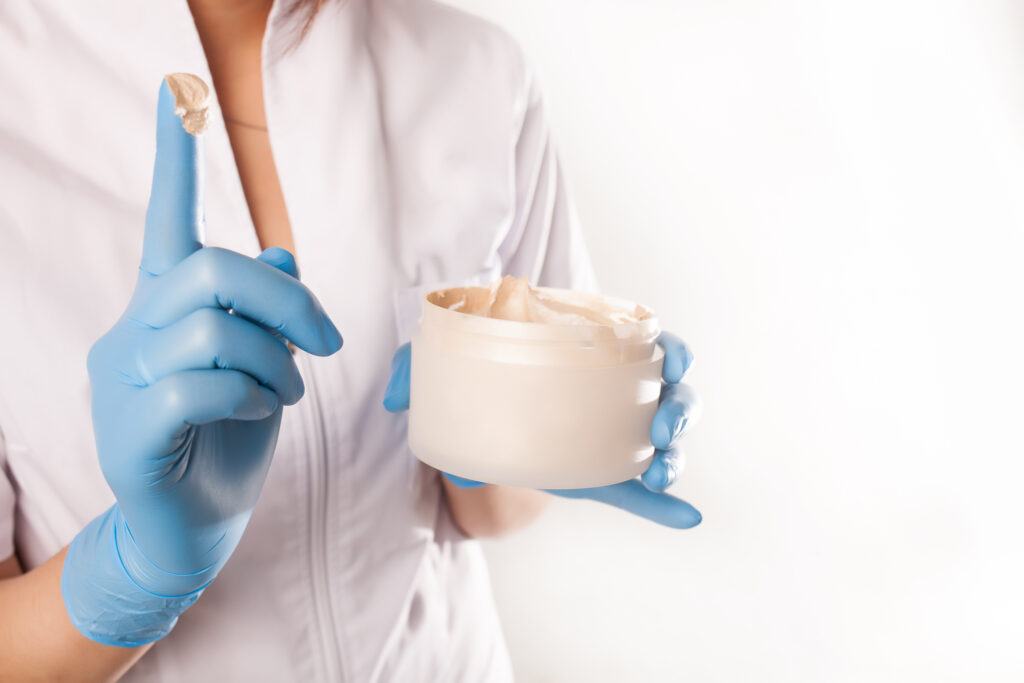
Retinoids
Retinol, retinoid, retinoic acid, adapalene tretinoin, what are they? Are they all the same? Are they right for you? All of these ingredients /products are a form of Vitamin A. Vitamin A is an essential nutrient to the body that helps with maintaining healthy skin, eye function, reproductive health, and immune health. When taken in supplement form, it is stored in the liver until it is needed internally. When applied topically, it is readily absorbed by the skin so it can support the production of collagen, elastin, and epithelial cells. Topical Vitamin A comes in several formulations and percentages and can be a bit confusing. Let’s start with some definitions. “Retinoid” is a broad term referring to all forms of the Vitamin A derivatives known as retinol, retinoic acid, adapalene, and tretinoin. Not all retinoids are created equally, so it’s important to know what you are buying and how to use it properly.
Understanding Retinoids and Vitamin A Derivatives
Retinols are derivatives of Vitamin A, but they require the body to do some extra work in order to reap the benefits. When applied topically, the skin must convert the retinol to retinal then subsequently retinoic acid before it becomes an effective form of rapid exfoliation and collagen booster. Retinoic acid is the metabolic product of retinol and it is the magical nutrient that is responsible for all of the health and development that gives us all the feels for retinols. Retinols can be found in sooooo many over the counter and cosmeceutical products which makes it easier to obtain than its more aggressive sister tretinoin. These products are often combined with anti-inflammatory ingredients too, that way your skin can acclimate to it more easily. If you question which to invest in, please start by reading my post called “Why are You Still Using That?” This is one of those game-changing products that you don’t want to skimp on. Take the time to invest in a good formulation that is appropriate for you. Remember, you are not alone, you can always talk to your skincare provider about which retinoid is right for your skin’s individual needs. When comparing retinol to tretinoin, many would simply say that tretinoin is stronger than retinol and leave it at that. While this is true, I prefer to look at them as a dynamic duo. I tend to use tretinoin as an acute corrective treatment and then follow up with retinol as more of a maintenance product. When they are used as the symbiotic team I know them to be, results are rapid and dramatic.
Other Considerations Regarding Retinoids
Another Vitamin A derivative is adapalene most commonly known for its brand name Differin. This medication is used to treat acne and is often used in conjunction with benzoyl peroxide. Adapalene or Differin comes in several strengths and formulations which are thoroughly explained on their website.
At one time Differin was only available by prescription, but in 2016 the FDA approved it for OTC status making it readily available in most retail pharmacies.
The effects of any retinoid will take several weeks of use before positive changes can be seen and will depend somewhat on the percentage you use and your skin’s tolerance. If you are under the care of a professional skincare provider, they should help guide you in titrating your usage to avoid skin irritations which are fairly common with retinoids. I typically patients on a low percentage (.025% or .05% depending on their skin type) and direct them to start by using their retinoid every third night for two weeks then every other night for two weeks and then every night for the remainder of the time they are using it. If at any time you have that red rashy angry skin response, you should pull back usage to the previous two weeks regimen. If you have an adverse response that doesn’t correct, that particular retinoid may not be for you, and you should work with a skincare professional to find a more suitable product.
When you find the right strength and formulation, and your retinoid of choice is doing its thing, your skin will transform. You will look brighter and have more reflectivity. Your skin will feel smooth soft and supple. Pores will shrink down and become less noticeable, and blemishes will clear up. Side note: Retinoids are great for treating keratosis pilaris (those annoying bumps on the back of arms and thighs). I truly hope that if you are not currently using a retinoid you are open to trying one. Magical mystical retinoids are a healthy skin anti-aging staple.
